OUTSOURCED
BY TREVOR BACQUE • PHOTO: VECTEEZY
Business practices evolve and shift as new farmers take over from their predecessors. Agrologists were often the sole outside opinion sought by farmers of previous generations, but this is no longer the case. The under-45 crowd is generally much keener to call a consultant for assistance and trust that experts will help them work smarter, rather than harder. This generation may seek expert input in agrology, finance, accounting, business planning, mental health and more.
BUSINESS COACHES
Farmer Coach is the coaching wing of Hebert Group, a consortium of ag companies created by Saskatchewan grain farmer Kristjan Hebert of Moosomin, SK. He and Evan Shout are certified accountants, farmers and friends of 20-plus years. The two participate in Strategic Coach, a Toronto, ON, entrepreneurial business program for a person in any industry to elevate their business. Through their participation in that program, they realized they could make a similar, ag-specific offering, which led to the creation of Farmer Coach.
In 2022, they launched the Farmer Coach, which incorporates the best elements of similar, previously existing professional development programs with their own experiences as western Canadian farmers. Pulling in 20 farmers at a time, Hebert and Shout put on 1.5-day professional development sessions in Saskatoon, SK, three times per year. They help these farmer cohorts further develop their farm business in whatever way the participant desires.
The program’s focus is strategy, long-term planning, goal setting and accountability. Hebert and Shout assist farmers in scrutinizing their business structure. Participants produce multi-year plans and rank their performance in a long list of business areas. This gives them much to think about and work through.
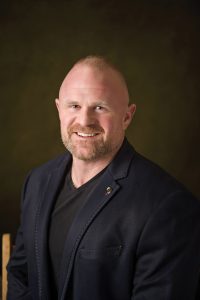
“That’s the concept we wanted to bring to the primary agriculture industry—was to make them get off the farm,” said Shout. “Make them sit down in a class with their peers and work on their business rather than being day-to-day at all times.”
Farmer Coach participants come from various agricultural sectors, and even countries, but their commonalities transcend borders. “It’s more the progressive mindset,” he said. “It’s the guys who treat their business like a business. They truly believe they’re entrepreneurs, they’re not just farmers. They run a multimillion-dollar business, and they believe in having a stronger strategy, whether it’s in HR or in financial aspects.”
The typical age range of farmer participants is 35 to 45. They operate small to mega-sized established farms but demand more out of their current situation. This might include better interpersonal skills, marketing approaches or business acumen.
Participants in the program also share a formidable challenge. They face incrementally increased risk every single year. “If we looked at what it cost to put in a crop 10 years ago, it was $170 an acre, and now it’s approaching $500,” said Shout. “We have three times the risk we had when mom and dad were working the farm. There’s so much risk that the stress levels and the amount of decision-making and the size of the decisions people are making, have pushed them towards getting experts, somebody that knows more about that topic than they do.” Farms that have expanded their acreage are often required to provide annual projections, which they have not previously had to do. This has additionally forced farmers to turn to third-party advisors by necessity.
“You’ve got to do what you’re good at and farmers are historically good at growing grain,” said Shout. “That’s where the professional side of the business started to come in more.”
THE PLAYER
Ryan Galbraith is a 32-year-old Minnedosa, MB farmer with 12 crop years under his belt. He met Hebert in 2016 at Texas A&M in The Executive Program for Agricultural Producers (TEPAP), a well-regarded coaching program for North American farmers. Since then, he kept in touch with Hebert and once Farmer Coach launched, he immediately signed up. The young farmer said continuous education is very important to him. His approach to farming is in lockstep with typical Farmer Coach clientele. “I’m extremely competitive,” he said. “That competitive drive and will to win makes me never OK with the status quo.”
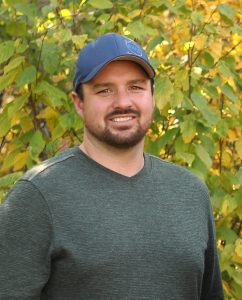
Today, Galbraith said he carries a progressive mindset and employs farming practices to match. “Every decision is a business decision. That goes into a lot of our decision-making: how can we do better every year? So, we set goals and when we get them, we celebrate them. And when we don’t, we ask, ‘Why didn’t we hit these goals?’”
When he went through his first Farmer Coach seminar this past November, he wrote out one-, three- and 10-year plans for the family farm, where his parents are semi-retired, and his younger brother Jason has recently joined the operation. “That was very good to put that all down on paper,” he said, and noted it was the first time he’d ever thought of the farm in such a long-term way.
Galbraith even appreciates that the program forces him to leave the farm. Too often, he has put his head down and done the work but didn’t take stock as goals were achieved. Failure to take a breather on occasion is a common problem among farmers and a contributor to burnout. “This is teaching us how to set those goals and acknowledge them, and when they’re hit, then reset goals instead of just pushing the goalpost.”
He recalled having to answer 27 key questions at TEPAP about his farm’s health, addressing everything from accounting and HR to agronomy and marketing. While he and most of his fellow participants “failed” the self-guided survey, he was surprised to see the progress he had made five years later at Farmer Coach. “I thought we’d come a long way since,” he said. “There’s a lot more stuff we’re doing, but we haven’t hit the finish line with a lot of these things. It just reiterates to yourself that, OK, we have got to get back into some of these higher level management ideas and processes to really move forward on things stuck at 80, 90 per cent done. We need that last bit.”
THE FARM FAMILY COACH
Family relationships are complex at the best of times, so how do farm families navigate something as complex as farm transition? They call Elaine Froese. She carries conflict mediation certification from Mediation Skills in Winnipeg, and certified coach designations from the Hudson Institute of Santa Barbara (2003). The author of five books on vital farm topics, Froese has helped farm families through transition, divorce, mental health crises and more for the past 30 years. The Boissevain, MB, consultant has never been busier. This is due in part to the normalization of mental health conversations and a general effort to destigmatize mental illness.
“Our specialty is helping farmers find harmony through understanding,” said the 66-year-old. She is the first to admit she’s not a therapist, nor a psychologist. What she is, however, is a good listener who asks, “really hard questions.”
“Coaching is about helping create the next steps of learning, experimenting, networking and training of where you want to go as a family, and where you want to go as management and where you want to go in ownership.”
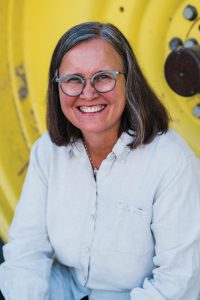
The lion’s share of Froese’s work relates to farm transition. Negotiation of the family-management-ownership triangle is the key. Satisfy all three corners of the equation and you’ll have a successful transition, she said.
The vast majority of her clientele are between 25 and 44. “The shift really is the next generation is very open to asking for help,” she said. The older generation does ask for help but not as readily. She is heartened to see older male farmers more willing to seek therapy for mental health issues, she added.
Froese carries out initial meetings and discovery calls with clients via Zoom. Use of the platform has greatly accelerated since 2020. In-person meetings can follow if a family enlists her services for the full farm transition. The wide variety of coaches and advisors made available by virtual platforms is “golden,” said Froese. “Every farmer should know how to do Zoom.”
Coaching services are not free, but Froese playfully reminds farmers that though her hourly rate is one-third the cost of a bag of InVigor hybrid canola, it must be viewed as an investment in the next 20-plus years.
She helps each family come to terms with the three Cs of successful transition: Clarity of expectations, certainty of timelines and commitment to action. “The work I do is help the family understand [these principles],” she said. “Everyone needs to be valued. Everyone needs to be heard.” Most importantly, our presuppositions about family dynamics and the important decisions at hand must be spoken about. The more information out in the open, the better. She helps families stimulate conversation and encourages family dynamics to play out.
Froese often says that participants are the ones rolling up their sleeves during a transition, not her. “I do not do the work,” she said. “The family has to be willing to do the work and make the shifts for them to get what they all really want.” Many feel anxious and totally overwhelmed by farm transition, which is understandable, she said. But failing to address this necessary facet of farm life serves nobody in the end. “People don’t know where to start and I help them get started by bringing them to the table. That’s the first step.”
THE ORGANIZATIONAL CONSULTANT
It’s not just individual farmers that need consultants. Ag groups regularly work with third parties, as well. Serecon is a Canadian consultancy that helps individuals and ag groups position themselves as leaders in their specific areas of agriculture. Its consultants help clients achieve success by better understanding their market, membership and the dynamics of the sector in which they operate.
Bob Burden is a professional agrologist, certified business analyst and senior director at Serecon. For 32 years, he has helped Canadian clients with business evaluation, appraisal and management consultation; in short, everything. Industry organizations may wish to calculate such things as sustainability metrics and cost of production for their farmer members. Burden also works with individual farmers to analyze the value of their farms. This may be to prep for the addition of a value-added business, land sale, divorce and more. Groups and individuals frequently wish to determine their current value, however they measure it, and how this can be increased through improved operations.
“We deal with farmers who are concerned about the net, not the gross,” he said. “They’re all really, really curious people.”
Often, Serecon clients seek assistance because the value premise of their product has changed. An egg used to be an egg, but now there are a dozen or more types of eggs. Ag commodities may be marketed for their end-use qualities, but also for their means of production. Are crops local, organic, regenerative, sustainable, or something else entirely? In 2023, many are effectively forced to leverage business practices to further profitability.
“Everybody’s kind of struggling, trying to sort out what it is the consumer wants, and how to monetize that,” said Burden. “So that they make sure that they get a fair rate of return on what it is they have to do in order to produce the food and the food products in the way that the consumers want it.
“Farmers are operating a business now that is so complex. The capital requirements are so intense. I have seen the complexity of their decision-making process increase, and I think they’ve recognized that as well. They’ve reached out to different people in different areas to help them with it.”
To save time and money, farmers increasingly hire consultants with expertise in a given area. “They recognize the value of having somebody who might be a bit more familiar with it, offering advice on it. They’re not afraid to tell you what they think, or to argue or debate with you, but they’re interested in your opinion, and that’s why they’re coming.”





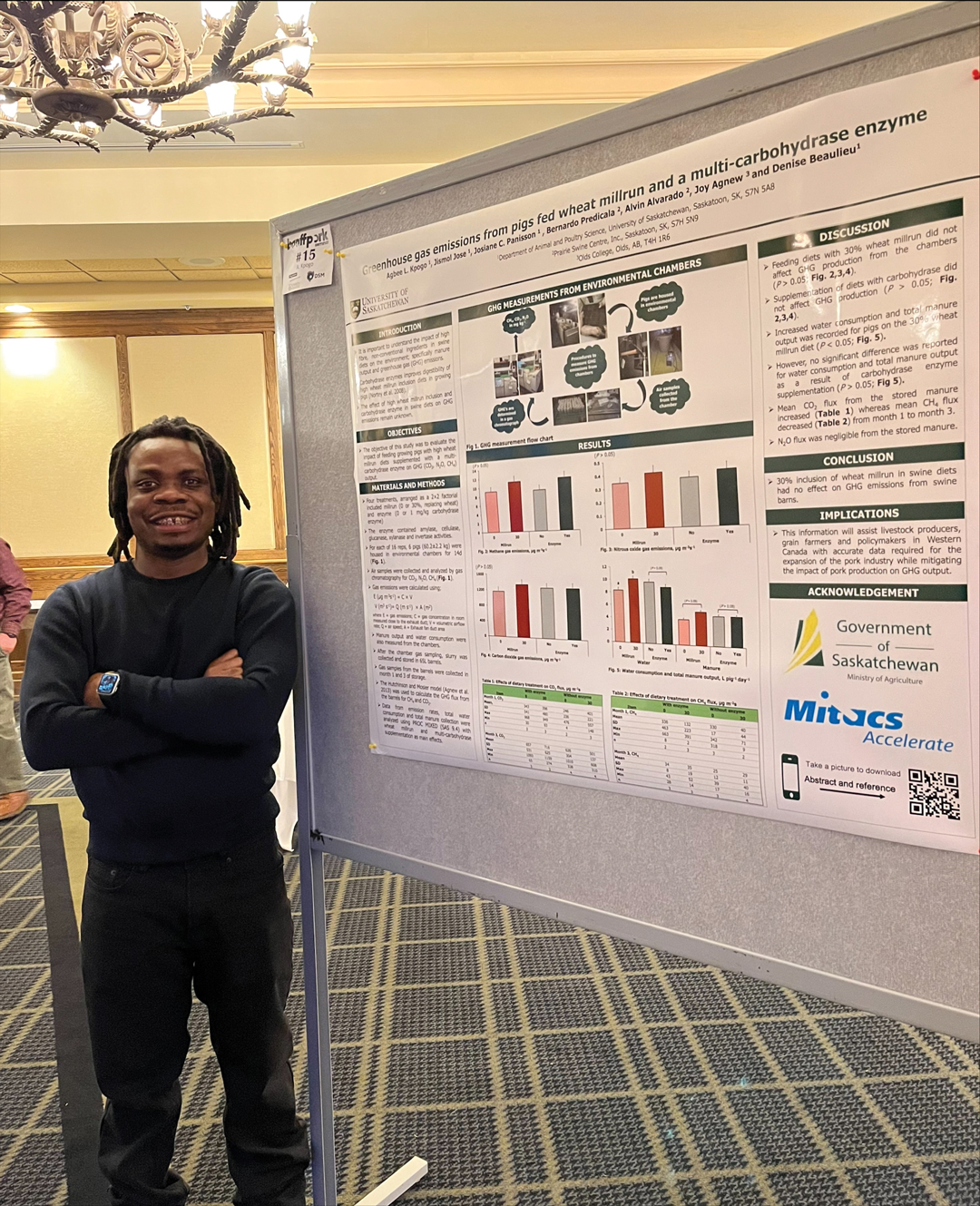
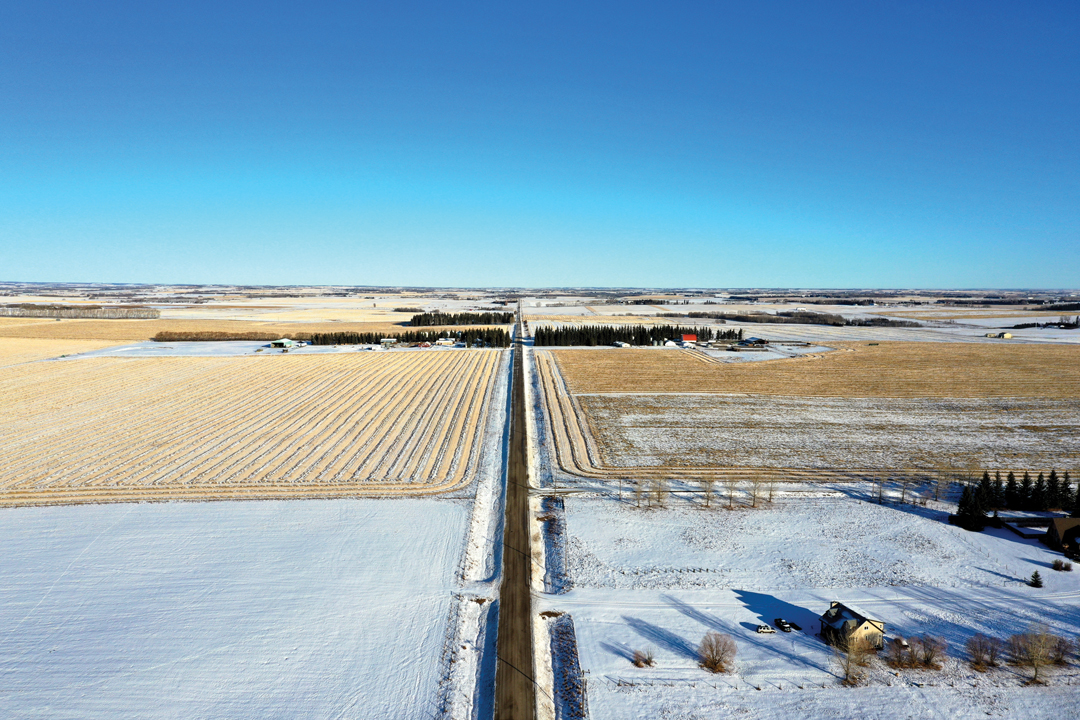
Comments